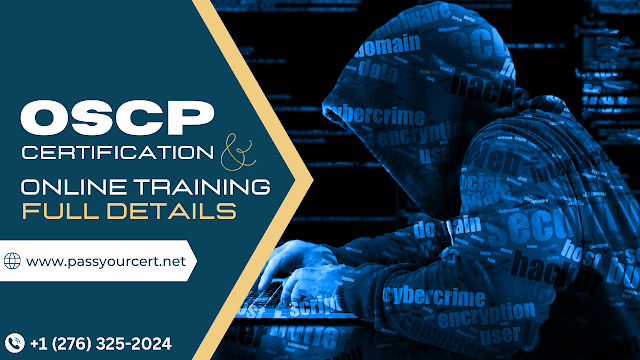Certified Protection Professional (CPP) Online Training Guide
The Certified Protection Professional (CPP) certification, administered by ASIS International, is a globally recognized credential for security management professionals. Security professionals achieve CPP certification to validate their expertise in comprehensive security strategies, operational management, and crisis response. With more than 12,000 CPP-certified professionals worldwide, this certification stands as a gold standard, underscoring competence across a broad spectrum of critical security domains.
Obtaining the CPP certification signals to employers that a professional possesses the necessary skills to safeguard organizations’ physical, personnel, and information assets. This guide delves into the requirements, structure, and content of the CPP certification, highlighting its unique benefits for career advancement in the field of security management.
Benefits of Pursuing CPP Certification
- Career Advancement: CPP certification improves employability and promotion prospects for professionals, as it demonstrates a high level of competence and commitment to the security industry.
- Global Recognition: This credential is respected internationally, affirming a candidate’s knowledge in security best practices.
- Skill Development: Candidates acquire expertise in risk management, security operations, personnel management, and crisis intervention, equipping them to manage complex security challenges.
Exam Overview and Eligibility
Exam Structure
The CPP exam tests a comprehensive range of security management knowledge through 225 questions, with a 4-hour time limit. Of these questions, 200 are scored, while the remaining 25 are pre-test items, which do not affect the final score.
| Exam Component | Details |
|---|---|
| Name | Certified Protection Professional (CPP) Exam |
| Format | Multiple-choice questions |
| Total Questions | Up to 225 (200 scored, 25 unscored) |
| Time Limit | 4 Hours |
| Price | $335 for ASIS members, $485 for non-members |
| Retake Fee | $225 |
Eligibility Criteria
To qualify for the CPP exam, candidates must meet specific experience requirements:
- Education and Experience: Candidates with a bachelor’s degree need at least seven years of experience in the security field, with at least three years in responsible charge.
- Alternative Experience Path: Professionals without a degree require a minimum of nine years in the security industry, including at least three years in a managerial role.
CPP Exam Learning Domains
The CPP certification program encompasses seven core areas essential to effective security management. Each domain is covered in detail during the training process to prepare candidates thoroughly.
1. Security Principles and Practices
- Develop and implement comprehensive security policies.
- Identify security risks and develop mitigation strategies.
- Continuously evaluate and improve security protocols through auditing and assessments.
2. Business Principles and Practices
- Manage security-related budgets and financial operations.
- Establish professional relationships with external agencies to meet organizational goals.
- Develop policies that align security objectives with overall business strategy.
3. Investigations
- Conduct comprehensive investigative operations, from surveillance to evidence collection.
- Develop policies for investigative processes, including interviews and evidence handling.
- Provide expertise in support of legal proceedings, both civil and criminal.
4. Personnel Security
- Design background checks and security screening procedures for hiring and promotions.
- Implement employee security awareness programs.
- Develop executive protection protocols to ensure the safety of key personnel.
5. Physical Security
- Conduct facility security audits and assessments.
- Implement effective physical security measures such as surveillance systems, access control, and perimeter defenses.
- Regularly test and monitor the effectiveness of physical security solutions.
6. Information Security
- Develop and manage policies to protect sensitive information against threats.
- Implement data protection strategies that address both digital and physical vulnerabilities.
- Manage information security incidents and ensure timely recovery of affected systems.
7. Crisis Management
- Prepare crisis response plans that mitigate organizational risk in emergency situations.
- Train employees on emergency response protocols, including evacuation and shelter-in-place procedures.
- Lead post-incident recovery efforts to restore operations swiftly and minimize disruption.
Learning Pathways for CPP Certification
ASIS provides various learning formats to accommodate different preferences:
- One-on-One Training: Personalized instruction allows for flexible scheduling and immediate clarification of queries.
- Online Training: Online modules provide convenience and cost-effectiveness, enabling candidates to study from any location.
- Corporate Training: Tailored group training sessions help organizations upskill their security teams in line with CPP certification requirements.
Recommended Study Approach
- Study Guide and Resources: Begin with the ASIS CPP Study Guide and access resources like flashcards, practice exams, and ASIS webinars.
- Exam Preparation Class: Many professionals benefit from ASIS-led preparatory classes that offer in-depth insights into each domain.
- Peer Support: Engage with online study groups or forums to exchange tips, discuss challenging topics, and stay motivated.
Exam Retake Policy
Candidates who do not pass the CPP exam may retake it. The retake fee is $225, and candidates are encouraged to review weaker areas identified in their score report before attempting the exam again.
Conclusion
For security professionals seeking to establish themselves as leaders in the field, the CPP certification is an invaluable credential. The Certified Protection Professional, CPP Certification equips individuals with advanced skills, affirms their dedication, and opens doors to higher positions within the industry. By following the recommended study pathway and mastering each domain of the CPP exam, candidates can secure this prestigious designation and enhance their impact within the security industry.


%20656-0395%20(3).png)

Comments
Post a Comment